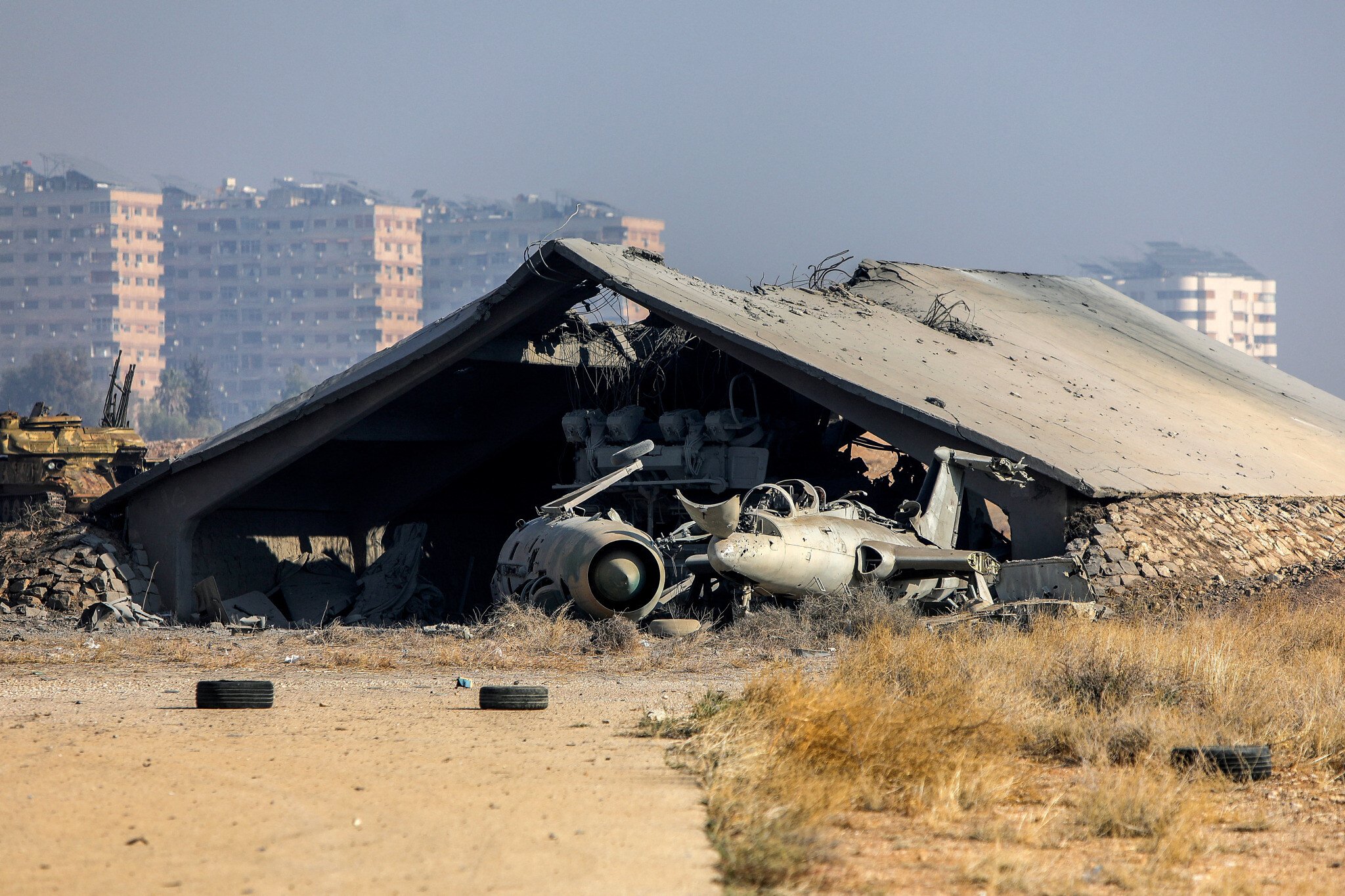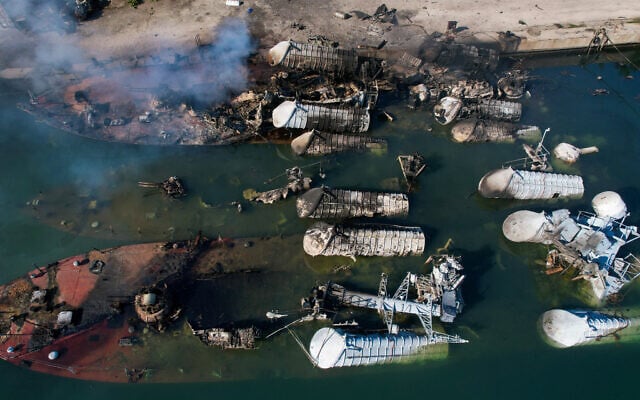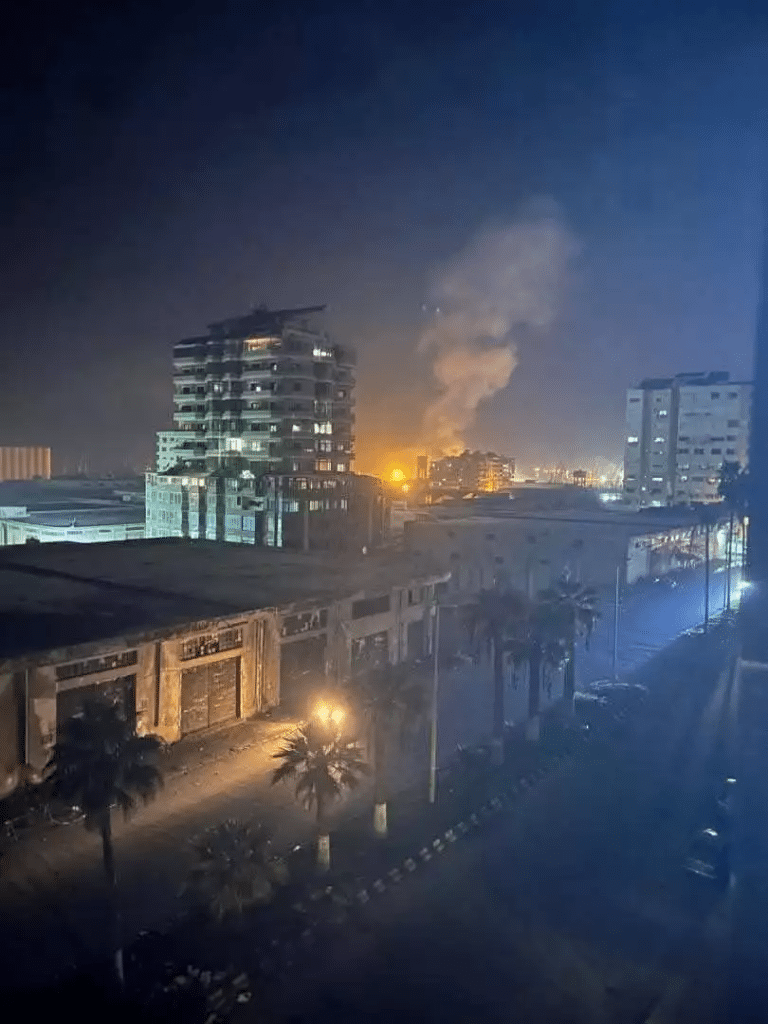Published by an old curmudgeon who came to America in 1936 as a refugee from Nazi Germany and proudly served in the U.S. Army during World War II. He is a former law enforcement officer and a retired professor of criminal justice who, in 1970, founded the Texas Narcotic Officers Association. BarkGrowlBite refuses to be politically correct. (Copyrighted articles are reproduced in accordance with the copyright laws of the U.S. Code, Title 17, Section 107.)


"Israel does not intend to interfere in Syria's internal affairs," Netanyahu declared Tuesday, revealing that he had "authorized the Israeli Air Force to bomb strategic military capabilities left by the Syrian military, so that these do not fall into the hands of the jihadists." The premier drew a historical parallel, noting it was "similar to what the Royal Air Force did when it bombed the Vichy regime's fleet that collaborated with the Nazis so that it wouldn't fall into their hands."
Military sources revealed that hundreds of strategic targets across Syrian territory were struck in an operation that had remained under strict operational secrecy. Simultaneously, the IDF chief of staff and the director of Shin Bet held crucial discussions in Egypt addressing regional security concerns, including ongoing hostage-related matters.
Netanyahu expressed openness to relations with Syria's future regime while laying down clear conditions. "If this regime allows Iran to re-establish itself in Syria, or allows the transfer of Iranian weapons or any other weapons to Hezbollah; or attacks us – we will respond with force and we will exact a heavy price," he warned, adding ominously that in that case, "what happened to the previous regime will happen to this regime as well."
Military officials indicate the operation was launched in response to rapidly evolving developments on the ground. While surveillance of rebel activity in the region had been ongoing, the acceleration of events demanded immediate action. The operation received approval from the IDF Chief of Staff Herzi Halevi during a Saturday security assessment, leading to the swift deployment of forces.
The operation saw the deployment of 350 Israeli Air Force combat aircraft conducting multiple strike missions. Forces targeted 320 strategic assets spanning from Damascus to Tartus, including MiG-29 fighter jets, manufacturing facilities, ammunition storage sites, Scud missile batteries, cruise missile systems, unmanned aerial vehicles, aircraft and attack helicopters, radar installations, and weapons storage facilities.
 IAF strikes at the Lattakia port in western Syria.
IAF strikes at the Lattakia port in western Syria.
Naval forces joined the campaign, executing strikes against advanced Syrian naval vessels at two coastal locations – Latakia and Minet el-Beida. Military sources confirmed that the targeted assets, which included dozens of sea-to-sea missiles capable of striking targets 50-62 miles away, had been under sustained intelligence monitoring for years.
In response to the Syrian developments, IDF forces have established positions at strategic locations along the buffer zone border. This deployment aims to safeguard Israeli civilians and prevent critical military capabilities from falling into unauthorized possession. During buffer zone operations, various weapons systems were discovered, with the military emphasizing its commitment to addressing any additional armaments found in the region. Officials stress that these actions are defensive in nature and do not constitute interference in Syria's internal conflict.
Addressing the Iranian dimension, military sources indicate that Tehran has experienced a substantial decline in its Syrian foothold, significantly diminishing its operational capabilities against Hezbollah. The IDF maintains its focus on the Syria-Lebanon border, emphasizing that any attempts to transfer weapons will trigger a military response.
1 comment:
Bomb them back to the Stone-age!
Post a Comment